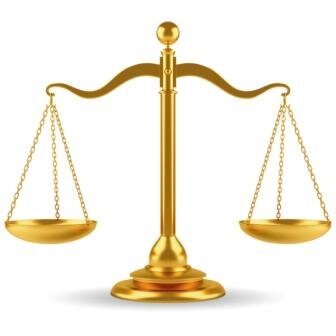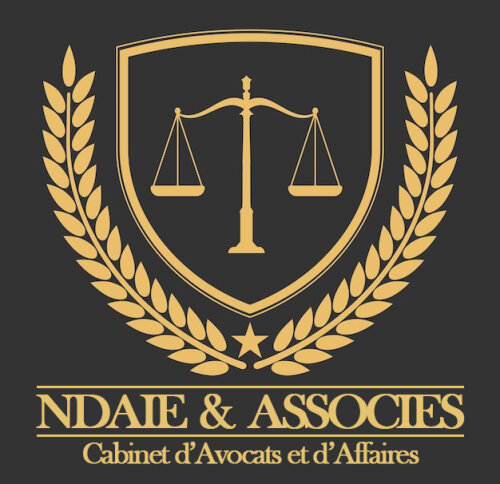Best Juvenile Law Lawyers in Lubumbashi
Share your needs with us, get contacted by law firms.
Free. Takes 2 min.
List of the best lawyers in Lubumbashi, DR Congo
About Juvenile Law Law in Lubumbashi, DR Congo:
Juvenile Law in Lubumbashi, DR Congo deals with legal matters involving minors who are under the age of 18. The goal of Juvenile Law is to ensure the well-being and protection of children while holding them accountable for their actions. This area of law covers a wide range of issues such as juvenile delinquency, child protection, adoption, and custody.
Why You May Need a Lawyer:
You may need a lawyer in Juvenile Law if you are a minor facing criminal charges, a parent involved in a child custody dispute, or if you are seeking to adopt a child. A lawyer can provide guidance and representation to ensure that your rights are protected and that the best interests of the child are considered.
Local Laws Overview:
In Lubumbashi, DR Congo, the legal system recognizes the special status of minors and has specific laws in place to address issues related to juveniles. For example, the Juvenile Code outlines the rights and responsibilities of minors, as well as the procedures for handling juvenile offenders. The law also emphasizes the importance of rehabilitation and education for young offenders.
Frequently Asked Questions:
1. What is the age of majority in Lubumbashi, DR Congo?
In Lubumbashi, DR Congo, the age of majority is 18 years old.
2. Can a minor be tried as an adult in Lubumbashi?
Under certain circumstances, a minor in Lubumbashi can be tried as an adult for serious crimes.
3. How can I file for custody of a child in Lubumbashi?
To file for custody of a child in Lubumbashi, you will need to go through the family court system and may benefit from the assistance of a lawyer.
4. What are the consequences of juvenile delinquency in Lubumbashi?
The consequences of juvenile delinquency in Lubumbashi can vary depending on the severity of the offense, but may include counseling, community service, or time in a juvenile detention facility.
5. Can minors in Lubumbashi be emancipated from their parents?
Minors in Lubumbashi can be emancipated from their parents under certain circumstances, such as entering into marriage or demonstrating financial independence.
6. Are there support services available for juveniles in Lubumbashi?
Yes, there are support services available for juveniles in Lubumbashi, including counseling, education programs, and vocational training.
7. How are child custody decisions made in Lubumbashi?
Child custody decisions in Lubumbashi are made based on the best interests of the child, taking into account factors such as the child's age, health, and relationship with each parent.
8. What rights do minors have in legal proceedings in Lubumbashi?
Minors in Lubumbashi have the right to legal representation, the right to be heard in court, and the right to privacy in certain matters.
9. Can minors consent to medical treatment in Lubumbashi?
In some cases, minors in Lubumbashi can consent to medical treatment without parental consent, such as in emergencies or for certain types of care.
10. How can I appeal a decision in a juvenile court case in Lubumbashi?
To appeal a decision in a juvenile court case in Lubumbashi, you will need to follow the procedures outlined in the Juvenile Code and may benefit from the assistance of a lawyer.
Additional Resources:
For more information on Juvenile Law in Lubumbashi, DR Congo, you can contact the Ministry of Justice, the National Institute for the Protection of Children, or local legal aid organizations for assistance.
Next Steps:
If you require legal assistance in Juvenile Law in Lubumbashi, DR Congo, your first step should be to consult with a qualified lawyer who specializes in this area of law. They can provide guidance on your specific situation and help you navigate the legal system effectively.
Lawzana helps you find the best lawyers and law firms in Lubumbashi through a curated and pre-screened list of qualified legal professionals. Our platform offers rankings and detailed profiles of attorneys and law firms, allowing you to compare based on practice areas, including Juvenile Law, experience, and client feedback.
Each profile includes a description of the firm's areas of practice, client reviews, team members and partners, year of establishment, spoken languages, office locations, contact information, social media presence, and any published articles or resources. Most firms on our platform speak English and are experienced in both local and international legal matters.
Get a quote from top-rated law firms in Lubumbashi, DR Congo — quickly, securely, and without unnecessary hassle.
Disclaimer:
The information provided on this page is for general informational purposes only and does not constitute legal advice. While we strive to ensure the accuracy and relevance of the content, legal information may change over time, and interpretations of the law can vary. You should always consult with a qualified legal professional for advice specific to your situation.
We disclaim all liability for actions taken or not taken based on the content of this page. If you believe any information is incorrect or outdated, please contact us, and we will review and update it where appropriate.












